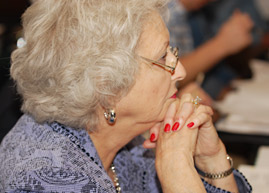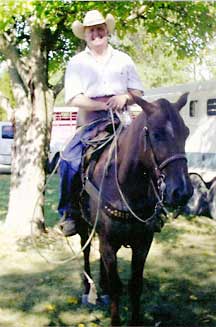BGCT takes decisive action to prevent future abuses
Updated: 3/02/07
BGCT implements responses
to church-starting scandal
By Marv Knox
Editor
DALLAS—The Baptist General Convention of Texas has implemented steps to prevent recurrence of a church-starting scandal that rocked the convention last year, a special study committee told the BGCT Executive Board Feb. 26.
Still, follow-up action is needed to complete the prevention process, the committee added, noting vigilance will be required to ensure that new church-starting policies are effective and secure.
| Oversight group Chairman Jim Nelson. |
The committee’s report followed in the wake of a scandal uncovered by outside investigators last year. The Executive Board hired the investigators in May and received the investigators’ report in a called meeting at the end of October.
That 42-page report revealed the BGCT had spent $1.3 million to start 258 churches in the Rio Grande Valley over a six-year period, but only five churches remained. Some of the supposed starts were “phantom churches” that never existed, it said.
The report cast a shadow on three Valley pastors—Otto Arango, Aaron de la Torre and Armando Vera—who led the churches that sponsored the alleged new congregations. It described how at least some of the $1.3 million had been misappropriated for other purposes.
• See complete list of Valley funds scandal articles |
The report also demonstrated how weaknesses in the Executive Board’s church-starting system—specifically lax oversight, suspended policies, and complex tracking and accounting systems—enabled the scandal.
Two weeks after it received the report, the Executive Board met in another called session to chart a course correction. The board approved five motions designed to clean up the scandal and prevent future problems.
The first motion called for implementing seven recommendations suggested by the outside investigators. It instructed Executive Board Chairman Bob Fowler to appoint an oversight group to “closely monitor the timely implementation of thse recommendations”
Jim Nelson, an Austin attorney, chaired that oversight group and presented a six-page report on its findings.
The oversight group believes Executive Board Executive Director Charles Wade and the board’s staff have worked very hard “to ensure what has happened won’t happen again,” Nelson told the board.
 |
| Executive Board member Helen Price. |
He guided the board through the oversight report. The central feature is a step-by-step evaluation of responses to the outside investigators’ seven recommendations:
• “The guidelines for church starting should be reviewed and revised.”
New church-starting guidelines have been developed, Nelson announced. The board received them the following morning
“The oversight group thinks that the guidelines, when adopted, will provide the basis for accountability of all parties and for protection of the tithes and offerings of Texas Baptists being used for church starts,” Nelson added, reading from the report.
“This, of course, will be the case only as far as these procedures are followed and adhered to. Especially important here is that there be no relaxation of the policies and standards. The staff has incorporated that into its procedures.”
The oversight group urged the Executive Board’s missions funding group to maintain consistent review of the church-starting process, insisting on “compliance with all rules and guidelines.”
• “More accurate and accessible mortality rates are needed.”
“Mortality rates” assess how many church starts succeed versus how many fail. This material was “difficult and cumbersome to retrieve from the BGCT’s system,” the oversight group reported.
 |
| BGCT President Steve Vernon. |
Executive Board staff recognized this problem and started trying to improve the system even before the investigators began their work, but a new and improved system was not in place at the time, the oversight group’s report stated.
“Implementation of this recommendation is complete,” the report noted, stressing that “futher tracking of this system is essential.”
• “Record keeping needs to be integrated and coordinated.”
Investigators complained the Executive Board’s record-keeping system, which could assign as many as three tracking numbers to a single church, impeded their investigation. More importantly, it prevented convention leaders from receiving meaningful data on which to base decisions, they added.
A new system to integrate records has been put in place, and “final integration” is expected by April 1, the oversight group said.
• “Better internal controls are needed.”
Procedural changes have been made to control how church-starting funds are issued and to document use of the money, the oversight group noted, adding the entire process is expected to be completed before the Executive Board’s next meeting, May 21-22.
• “Accounting design and control of reporting system.”
This correction is intended to provide the Executive Board’s accounting office control over documentation of funds, as well as how funding is processed and delivered.
This new system is in place, Nelson said. “That’s not to say fine adjustments won’t be needed,” he added, noting improvements in the system can be made incrementally as needs arise.
• “Response to allegations must be immediate.”
“The staff wants this. The staff is more anxious for this to be implemented than is the board,” Nelson said.
The oversight group reinforced that imperative in its report, stating, “The staff itself is bound with the responsibility to begin immediately upon notice to address and solve any problem creating the allegation.”
Implementation of an internal auditor should enable rapid response to allegations, and that process is being guided by the board’s audit committee.
In addition, the board’s staff is investigating an online “whistleblower” service that would enable Executive Board employees to register concerns anonymously.
• “Trust, but verify.”
The oversight group’s report noted implementation of the investigators’ recommendations “will make great strides in the mechanical and process operations” of verifying that church-starting guidelines are followed.
“Relying on trust is extremely important in the work of the kingdom, and such work is so important that it (must) be accompanied by monitoring, documenting and control,” the oversight group’s report stressed. “The key here is accountability, and the oversight group is confident the staff is committed to fostering a culture of accountability.”
The second motion approved in November called for raising the Executive Board’s church-starting guidelines to policy level. The motion instructed staff to present the church-starting policies to the board’s missions and ministries committee.
The oversight group noted the Executive Board’s staff had started this process prior to the Valley investigation. New church-starting policies were presented to the committee in December and were unveiled and discussed at the board’s February meeting.
The third motion called for creating “an internal audit function that will report to the audit committee.”
The oversight group noted the board’s audit committee previously began a process of creating such a function. During the meeting, the audit committee provided an update on progress in putting an internal auditor in place.
The audit committee is leading a risk-assessment process, which should be completed later this spring, reported Harold Richardson of Tyler, chairman of that committee.
Originally, the committee thought outsourcing would be the best approach to handling this ongoing audit function, Richardson said. But cost estimates are high, and the committee is considering other options, such as a staff auditor.
“We believe we can take care of 2007, and we will continue to study the feasibility of finding an individual to come on board,” he said.
“These actions are in full compliance with the motion,” the oversight group reported.
The fourth motion directed the board’s executive director, in consultation with legal counsel as well as convention and board officers, to consider “the full range of methods for recovery of funds misused or misappropriated” by the individuals mentioned in the investigators’ report, and to initiate appropriate actions to recover the funds.
Nelson and Wade reported that convention leaders, both staff and elected officers, had met with the three pastors identified in the investigators’ report.
“In each case, we expressed our sorrow and our request that they would make restitution,” Wade said, noting each meeting also included prayer.
In two of the three cases, convention leaders and the pastors agreed to try to continue talking about the situation, Wade said. In the third case, the pastor’s attorney instructed the convention not to contact his client directly.
Convention leaders “have taken every action they have been advised to take,” the oversight group reported.
The situation is complicated, because legal civil proceedings can be complex, tedious and time-consuming, Nelson told the board.
Discussion about the proceedings illustrated that complexity. In the middle of questions regarding the fourth motion on the possibility of civil lawsuits, a board member inquired about progress on the fifth motion—that the investigators’ findings might be reported “to any appropriate government investigatory agency” for possible criminal action.
Nelson explained legal actions of either nature—criminal or civil—could impact each other. So, the convention’s staff and officers, as well as the board, would need to be deliberate and paitent.
Steve Wakefield, the Executive Board’s attorney, confirmed documents prepared by the investigators have been turned over to the U.S. attorney’s office in Brownsville. This step would comply with the fifth motion, seeking criminal charges.
“We’re waiting on the U.S. prosecutor in Brownsville to decide whether to go forward” with criminal charges, Wakefield said. “We have not received word” on that decision, but he is remaining in “continual contact” with the prosecutor’s office, he added.
Executive Board Chairman Fowler praised both the staff and the oversight group. “They were very diligent in their work,” he said.
Wade also commended the oversight group. “I’m pleased the committee worked so thoroughly and diligently and were so personally invested in their work,” he said. “I’m grateful they affirmed the work of the staff, who worked so faithfully to implement the assignment.”
Fowler asked the staff to provide a full report on progress, which will be available before the Executive Board’s May meeting. He pledged the board would continue to monitor the issue.
News of religion, faith, missions, Bible study and Christian ministry among Baptist churches, in Texas, the BGCT, the nation and around the world.



